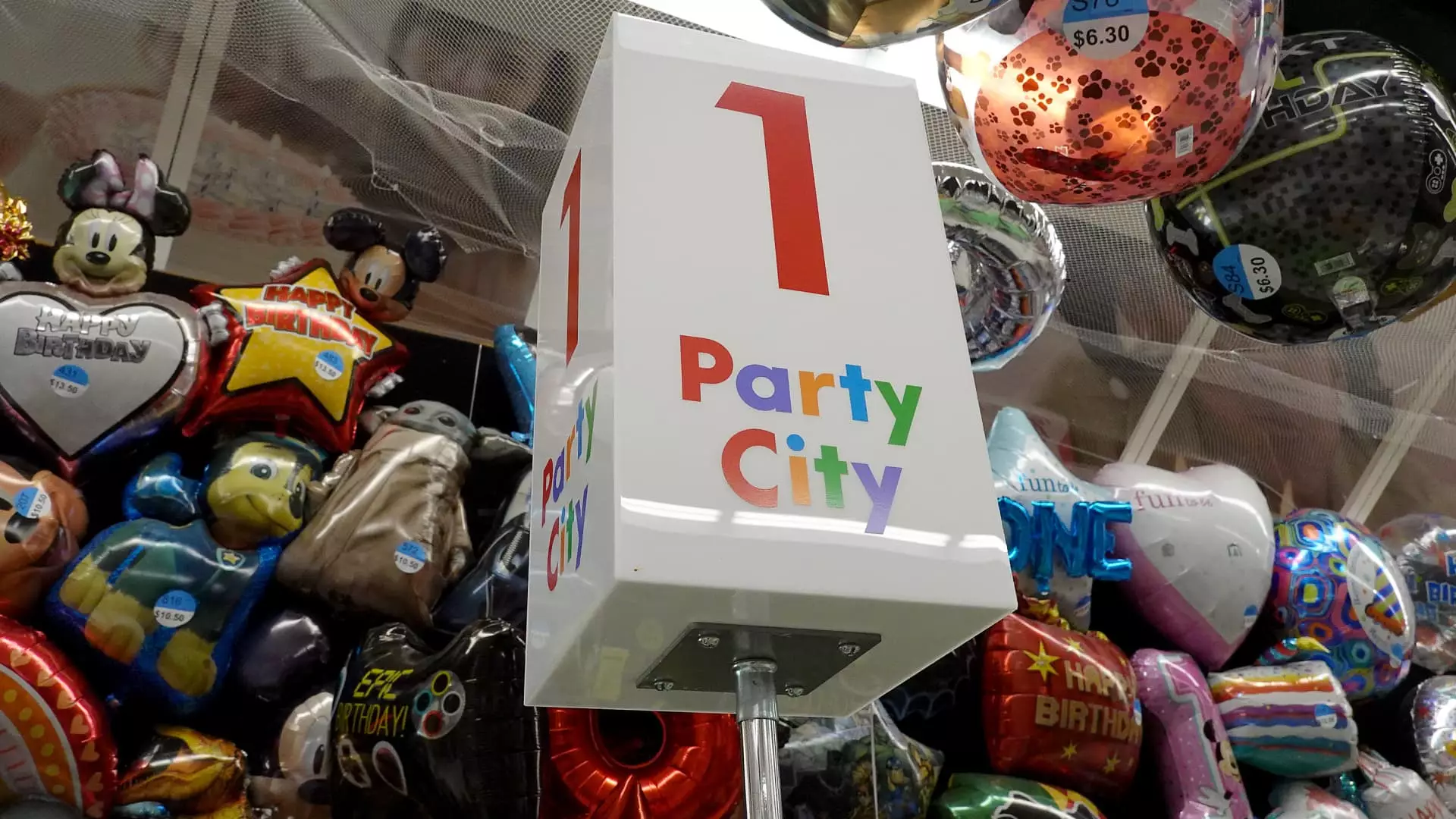Party City, a well-known retailer specializing in party supplies, recently made headlines with its decision to close all its stores and initiate corporate layoffs effective immediately. This drastic move signals the end of what was once a giant in the industry, highlighting the severe financial challenges that have plagued the company for years. CEO Barry Litwin’s announcement, described as one of the most challenging messages he’s had to convey, underscores the gravity of the situation. As the company heads into a wind-down process, it marks a significant shift in the retail landscape, particularly in the niche market of celebration and party goods.
The roots of Party City’s difficulties can be traced back to its bankruptcy filing less than two years ago, where the company struggled to manage over $1.7 billion in debt. Although Party City managed to emerge from bankruptcy in September 2023, transitioning to a privately-held company and shedding nearly $1 billion of its debts, this positive step was short-lived. Despite the temporary respite, maintaining a competitive edge proved increasingly challenging for the retailer. The market dynamics evolved, leaving Party City unable to adapt swiftly enough to changing consumer behaviors and competitive pressures.
Competition within the party supply sector has intensified, with rivals such as Spirit Halloween expanding aggressively. The recent announcement by Spirit Halloween to open ten new “Spirit Christmas” stores is emblematic of this growing competition, and the implications for Party City are significant. This incursion of new players has contributed to a deteriorating sales environment for Party City, which is further compounded by the rise of online shopping. With the popularity of e-commerce skyrocketing, retailers like Party City have found it challenging to maintain foot traffic in physical stores. Although Party City initiated its online presence by selling products on Amazon in 2018, this strategy wasn’t enough to rejuvenate the brand’s struggling sales.
Barry Litwin’s tenure as CEO began in August, just before the perilous journey it would soon undertake. His optimistic outlook on strengthening financial performance and enhancing customer experiences appears overshadowed by the inevitable closure announcement. Litwin’s previous experience at Global Industrial Company, while valuable, could not prevent the downward trajectory that Party City was already on. His inability to pivot the company effectively amidst the financial turmoil raises questions about leadership effectiveness in times of crisis.
The closure of Party City serves as a cautionary tale within the retail industry, revealing the significant challenges that even well-established brands face in today’s marketplace. As consumer preferences continue to evolve rapidly, adaptability emerges as a vital trait for survival. Party City’s once-reliable model has been eroded by increasing competition and an unforgiving shift toward online retail, compelling a re-evaluation of strategic direction for retailers in similar spaces. As we witness the closing of Party City, it becomes evident that the retail landscape demands resilience and agility to navigate the complexities of modern consumerism effectively.

